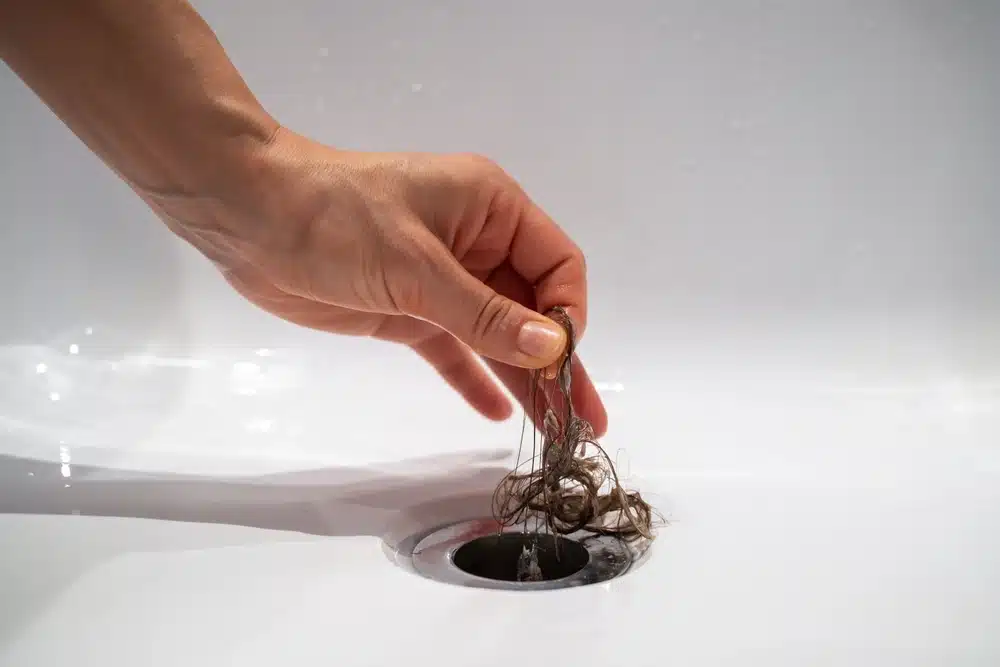Throughout life, you’ll notice your hair can change quite a lot and over time you might notice hair loss or hair thinning. These changes can happen for a number of different reasons from hormonal changes to the natural ageing process.
Today we’re focusing on the menopause and how that can cause changes in the body – including changes to the hair.
What is the menopause?
The menopause is part of the natural ageing process for women. During the menopause, you’ll notice hormonal changes where the oestrogen levels decline. This decline has different effects on the body and the hair.
How does the menopause affect your hair?
The drop in oestrogen levels that come with the menopause can cause hair loss. The change in hormone levels can cause the hair growth cycle to change and the rate of shedding can accelerate.
Why does the menopause cause hair loss?
As mentioned above, the menopause causes a rise in androgens in the body this rise is triggered by a drop in the levels of estrogen and progesterone production.
Due to the large changes in the level of hormones in the body, including a rise in androgens the hair loss cycle changes which can over time cause hair loss. The rise in androgens directly affects the hair follicles, causing them to shrink and eventually become unable to grow hair.
Can I stop hair loss during the menopause?
Androgens have a negative effect on our hair follicles and cause them to shrink until they no longer produce hair. Due to this, most hair loss that is a result of menopause cannot be stopped. However, it is important to remember that there can be other factors that contribute to hair loss during the menopausal period such as high levels of stress, illness and even poor diet.
If there are a number of different reasons you think you could be experiencing hair loss you can try to reduce hair loss by managing some of the above contributing factors.
Are there any hair loss treatments for the menopause?
Hair loss caused by the menopause can take years to stabilise and because of this the hair loss can be unpredictable and planning a treatment such as a hair transplant can be difficult. It is advised that you talk with a hair loss specialist to determine the cause of your hair loss, and then over time, you can consider treatment options.
If you would like more information on hair loss or to see if you’re suitable for one of our hair loss treatments please contact us today for a no-obligation consultation.


